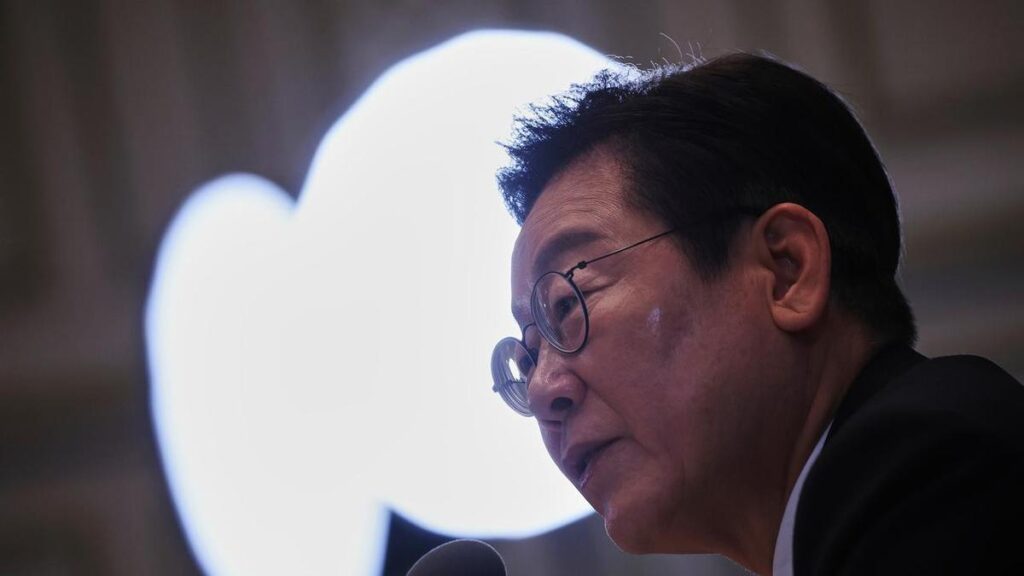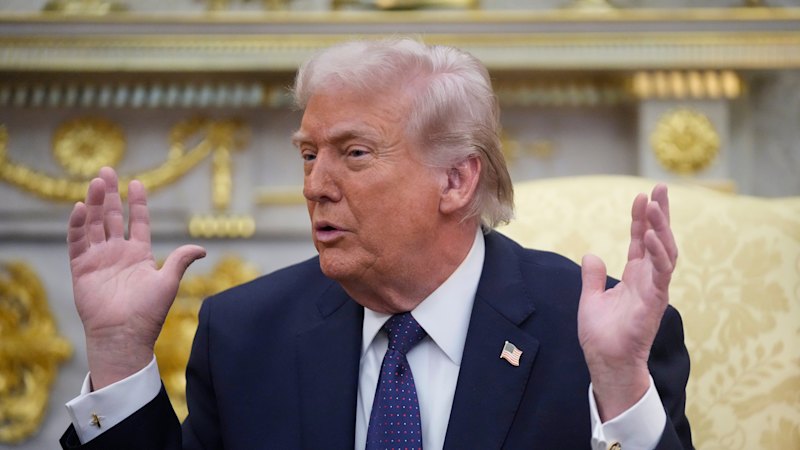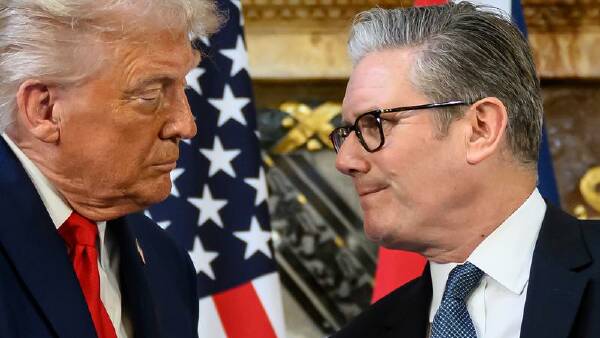
UPDATE: South Korea has just announced it cannot pay the staggering $350 billion upfront investment demanded by the United States as part of a tariff reduction deal. This urgent development comes amidst growing tensions over trade negotiations between the two allies.
In a statement made on October 5, 2023, South Korea’s National Security Adviser Wi Sung-lac confirmed that the government is actively seeking alternative solutions to meet U.S. demands. “We are not able to pay $350 billion in cash,” Wi stated during an interview on Channel A News, emphasizing that the amount could severely jeopardize the nation’s economy.
The backdrop to this crisis lies in a handshake agreement made in July 2023 between leaders of both nations, which aimed to reduce U.S. tariffs from 25 percent to 15 percent. Since then, South Korea has maintained that its proposed investment would primarily consist of loans and loan guarantees rather than a direct cash outlay, a point that has led to a deadlock in negotiations.
President Donald Trump has publicly insisted that South Korea provide this investment “upfront,” claiming it is part of the benefits stemming from his administration’s tariffs. Earlier this week, Trump highlighted the financial contributions from allies, stating, “We have in Japan it’s $550 billion, South Korea’s $350 billion. That’s upfront.”
However, South Korean officials are increasingly alarmed by the potential fallout. President Lee Jae-myung previously expressed concerns that without proper safeguards, such as a currency swap, the country could face a financial crisis due to its current foreign exchange reserves of $410 billion. Wi articulated the gravity of the situation, saying, “The position we’re talking about is not a negotiating tactic but rather it is objectively and realistically not a level we are able to handle.”
The ongoing negotiations have faced significant hurdles as South Korea resists U.S. demands for control over the funds involved. With talks stalled, South Korean officials are now eyeing the upcoming Asia-Pacific Economic Cooperation (APEC) summit next month, which President Trump is expected to attend, as a potential opportunity to renegotiate terms and finalize a trade deal.
This situation is rapidly evolving, and the implications for both economies are profound. As South Korea navigates these turbulent waters, all eyes will be on the upcoming discussions at APEC and whether a viable solution can be brokered to avert economic turmoil. Stay tuned for more updates as this story develops.






